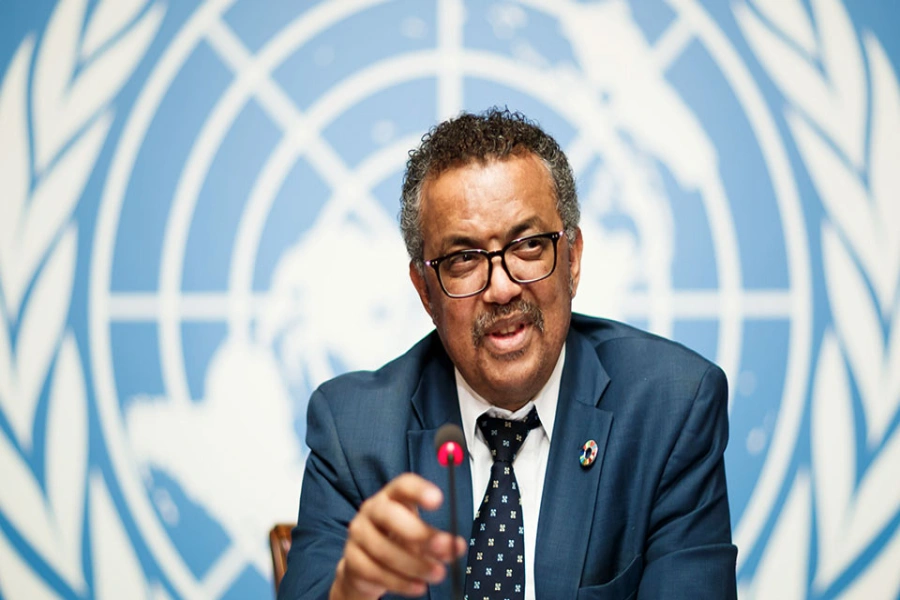Urges Nepal to abide by UNSC sanction against North Korea
KATHMANDU, Jan 10: Amid concern in various quarters that China was getting many developing countries into a debt trap through its investment in various projects under its Belt and Road Initiative (BRI), Japan has said that the financial support for infrastructure projects in developing countries should be concessional and that the whole process must be transparent.
In a press briefing to editors and senior journalists of mainstream dailies in Kathmandu on Wednesday, Japanese Foreign Ministry Spokesperson Natsuko Sakata, who is accompanying Foreign Minister Taro Kono during his official visit to Nepal, said it is the long-standing position of Japan that regarding the money invested in any infrastructure project, financial viability for the recipient countries should be taken care of. She also said that openness, transparency and economic viability in any infrastructure projects are Japan has always been advocating.
Nepal is one among various South Asian countries other than India to join China’s BRI and is currently in the process of receiving loans from China to execute various projects including a cross-country railway.
Although a large number of countries in the Asia Pacific and even Europe have agreed to be part of BRI, various major countries such as India and Japan have decided not to, as these countries along with the USA see a Chinese strategy to increase its clout and fulfill its strategic goals. The US together with the support of Japan and India has come up with an Indo-Pacific strategy to contain the Chinese strategy. Kono arrived in Nepal for a two-day official on Wednesday.
Spokesperson Sakata also clarified that if it is agreeable with those standards aforementioned, Japan and China will collaborate.
Japan extends financial support to execute DDR Strengthening Pr...

On another regional issue, Japan has urged Nepal to abide by UN Security Council sanctions against North Korea. In September 2017, the UNSC had introduced several measures to restrict oil imports and ban textile exports after it conducted a series of nuclear tests. The latest UN sanction was aimed at starving North Korea of oil and curtailing its income to thwart its nuclear program.
Earlier, Foreign Minister Gyawali and Japanese Foreign Minister Kono held delegation-level bilateral talks. During the meeting, Japan expressed readiness to support Nepal toward becoming a middle-income country by 2030. The two sides have agreed to hold a third bilateral consultative mechanism meeting in Tokyo, possibly next year, to regularize the process of discussing various issues of mutual interest and further deepen and expand areas of cooperation between the two countries. Japan is one of the largest donor countries for Nepal.
During the meeting, Japan agreed to send an agriculture survey mission to Nepal this month to evaluate high-value agriculture products here. The Japanese side also expressed readiness to invest in Nepal provided that Nepal resolved the issue of trademarks and ensured a conducive business environment for foreign investors.
MoU to send Nepali workers to Japan soon
Nepal and Japan have agreed to conclude a Memorandum of Understanding (MoU) at the earliest to pave the way for sending Nepalese workers to Japan under the new immigration policy introduced by Tokyo.
The two countries reached an agreement to this effect during a meeting between Foreign Minister Pradeep Gyawali and his Japanese counterpart Taro Kono in Kathmandu on Wednesday evening.
In his media briefing after the delegation-level talk between the two countries, Foreign Minister Gyawali said they exchanged views on sending labor to the Japanese labor market under the new immigration policy introduced by Japan. “We have agreed to conclude a Memorandum of Cooperation as soon as possible,” Gyawali told media persons.
Japanese Foreign Ministry Spokesperson Sakata said Japan is inviting Nepalese workers in some sectors.
During the meeting, Minister Gyawali thanked Japan for including Nepal as a source country for labor. Nepalese officials participating in the meeting said the Japanese side has responded positively to Nepal’s request to conclude a modality for sending Nepalese workers to Japan.
Nepal’s Ministry of Labor and Employment has proposed creating a dedicated government body in both countries to facilitate sending workers. In Nepal, such a government body would also carry out Japanese language tests to select potential candidates.
As per the Nepalese proposal, such workers will not have to pay any extra amount to go to Japan except all necessary expenses for their travel. Officials said a Nepalese delegation is expected to visit Japan soon to conclude an MoU to this effect. Technical teams from both countries are expected to finalize the modality.
In December, the Japanese government had endorsed a basic policy on a new visa system to encourage the entry of foreign workers from nine various countries including Nepal. Workers from these countries will be able to work in 14 sectors including construction, the restaurant business, farming and nursing care.
Amid a shortage of workers, Japan has announced a plan to bring in estimated maximum 345,000 foreign workers in five years’ time. Japan had long been preparing to bring in more foreign workers to meet its labor shortage.
Minister for Foreign Affairs Gyawali, during his visit to Japan in November, requested the Japanese authorities to include Nepal as one of the source countries for foreign workers in Japan.
Last updated on January 11, 2019.



































